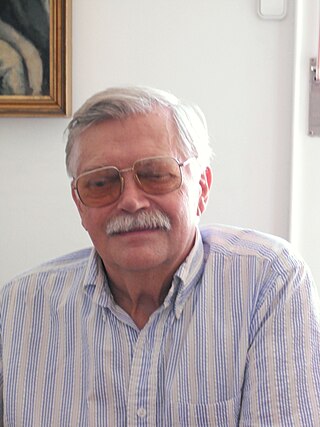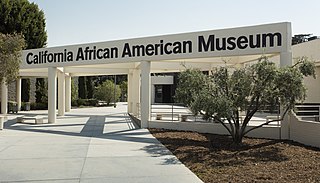Recipients [3]
This article needs to be updated.(February 2024) |
The Distinguished Scholarship Award was created by the PSA in 1984. The award was given biennially until 1990, when it became an annually granted award. [4]
- 2023 - Nadia Y. Kim, Loyola Marymount University: Refusing Death: Immigrant Women and the Fight for Environmental Justice in LA
- 2022 - Matthew Clair, Stanford University: Privilege and Punishment: How Race and Class Matter in Criminal Court
- 2021 - Tahseen Shams, University of Toronto: Here, There, and Elsewhere: The Making of Immigrant Identities in a Globalized World
- 2020 - Ranita Ray, University of Nevada, Las Vegas: The Making of a Teenage Service Class: Poverty and Mobility in an American City
- 2019 - Abigail Leslie Andrews, University of California, San Diego: Undocumented Politics: Place, Gender, and the Pathways of Mexican Migrants
- 2018 - Viraji Weeraseena, University of California, Riverside: The Structural Sources of Violent Crimes in Post-Civil War Sri Lanka
- 2017 - Allison Nasson, University of Puget Sound: Donor Friendly Victimhood: Narrative Construction as a Fundraising Strategy
- 2016 - Michael Messner (University of Southern California), Max Greenberg (University of Southern California), and Tal Peretz (Auburn University): Some Men: Feminist Allies and the Movement to End Violence Against Women
- 2015 - Paul Almeida, University of California, Merced: Mobilizing Democracy: Globalization and Citizen Protest
- 2014 - Isaac William Martin, University of California, San Diego: Rich People’s Movements: Grassroots Campaigns to Untax the One Percent
- 2013 - Drew Halfmann, University of California, Davis: Doctors and Demonstrators: How Political Institutions Shape Abortion Law in the United States, Britain, and Canada
- 2012 - Cecilia Menjívar, Arizona State University: Enduring Violence: Latino Women's Lives in Guatemala
- 2011 - Julie Shayne, University of Washington Bothell and University of Washington Seattle: They Used to Call Us Witches: Chilean Exiles, Culture, and Feminism
- 2010 - Kimberly Richman, University of San Francisco: Courting Change: Queer Parents, Judges, and the Transformation of American Family Law
- 2009 - Edward Telles and Vilma Ortiz, University of California Los Angeles: Generations of Exclusion: Mexican Americans, Assimilation, and Race
- 2008 - Ivan Light, University of California Los Angeles: Deflecting Immigration: Networks, Markets and regulation in Los Angeles
- 2007 - Jerome Karabel, University of California Berkeley: The Chosen: The Hidden History of Admission and Exclusion at Harvard, Yale, and Princeton
- 2006 - John Foran, University of California Santa Barbara: Taking Power: On the Origins of Third World Revolutions and Paul Lichterman, University of Southern California: Elusive Togetherness: Church Groups Trying to Bridge America’s Divisions
- 2005 - No award given
- 2004 - Evelyn Nakano Glenn, University of California Berkeley: Unequal Freedom: How Race and Gender Shaped American Citizens and Laura Grindstaff, University of California Davis: The Money Shot: Trash, Class, and the Making of TV Talk Shows
- 2003 - Amy Binder, University of California, San Diego: Contentious Curricula: Afrocentrism and Creationism in American Public Schools
- 2002 - Pierrett Hondagneu-Sotelo, University of Southern California: Domestica: Immigrant Workers Cleaning and Caring in the Shadows of Affluence
- 2001 - Valerie Jeness, University of California Irvine for a series of published articles dealing with hate-crimes, hate-crime legislation, and community responses to hate-motivated violence. The series was published in the following journals between 1994 and 1998: Gender and Society, Social Problems, Sociological Perspectives, Research in Social Movements, Conflict and Change, and the American Sociological Review.
- 2000 - Charles Varano: Forced Choices: Class, Community, and Worker Ownership
- 1999 - William Domhoff: Who Rules America? Power and Politics in the Year 2000
- 1998 - Simonetta Falasca-Zamponi: Fascist Spectacle: The Aesthetics of Power in Mussolini's Italy
- 1997 - Calvin Morrill: The Executive Way : Conflict Management in Corporations
- 1996 - James Aho: This Thing of Darkness: The Sociology of the Enemy
- 1995 - John Foran: Fragile Resistance
- 1994 - David A. Snow and Leon Anderson, Down on Their Luck: A Study of Homeless Street People
- 1993 - Rodney Stark and William Sims Bainbridge: A Theory of Religion
- 1992 - Kathy Charmaz: "Good Days, Bad Days, The Self in Chronic Illness and Time"
- 1991 - George M. Thomas: "Revivalism and Cultural Change: Christianity, Nation Building, and the Market in 19th-Century United States"
- 1990 - Jack Katz: Seductions of Crime: Moral and Sensual Attraction to Doing Evil
- 1988 - Unknown or No award given
- 1986 - Claude S. Fischer: To Dwell Among Friends: Personal Networks in Town and City
- 1984 - No award given







